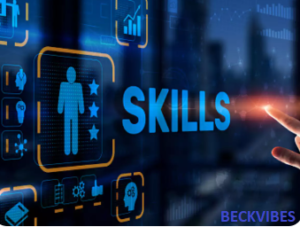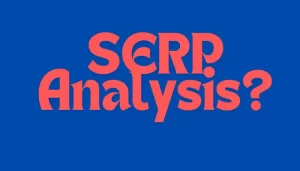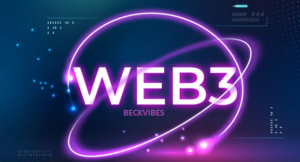
Is Technology Making Us Dumb?
Is Technology Making Us Dumb?
In this article, I aim to provide information on the effects of technology on human beings. Discusses how technology has changed the way people operate, work, and even think. There are differing opinions on this topic, but the number of researchers who believe that technology is making us less smart and motivated is increasing.
Is Technology Making Us Dumb?
The impact of technology on cognitive abilities and social skills. It begins with an introduction that analyzes the topic, emphasizes the importance of the issue, and poses a research question. It then explores the effects of technology on memory, critical thinking, and attention span. Technology has greatly transformed the world in a short period. Initially, it primarily improved efficiency in industries, but now it is a common part of everyday life thanks to advancements in computer and information technology.
Reasoning: Is Technology Making Us Dumb?
The article also focuses on the impact of technology on critical thinking, which is the logical processing of information. Additionally, I discuss attention span and how technology, particularly electronic games, can influence it. The essay aims to analyze the effects of technology on the critical thinking abilities of students. It also examines how modern tools like computers can assist in the various stages of the critical thinking process. The first section explores the effects of technology on memory, critical thinking skills, and attention span.
The second section delves into technology’s impact on face-to-face interactions, empathy, emotional intelligence, and communication skills. The final section discusses strategies for balancing technology use and intellectual development, the importance of media literacy, and the promotion of lifelong learning in a technology-driven world.
1.1. Overview of the topic
Is Technology Making Us Dumb? In recent years, the prevalence of technology in the modern world has led to the question of whether new advancements are benefiting society as a whole or whether these digital and technological advancements are harmful and are leading to a rise in individuals who are becoming more and more unintelligent. Research on this issue is vitally important because it addresses the ever-present electronic takeover of modern life. Ultimately, the idea that technology appears to be slowly taking over our cognitive and physical aspects is a very worrying concept at a societal level.
It is therefore not surprising that the research question that is being proposed is whether technology is improving cognitive abilities and social well-being or whether it is technology making us dumb. People have always found ways to entertain and occupy themselves, but when the first smartphone was released by IBM in 1994, this occupation and reliance on entertainment led to a rise in digital and technological usage every day. In the present day, research shows that adults check their phones between 80 to 300 times each day.
So in a world that is full of technology, it is a valid opinion to have that technology is arguably making people less able to think on their own two feet without technological support. However, that is not to say that medical and technological breakthroughs are something to be dismissed. It is clear from this that progress within the technological sector is inevitable.
1.2. Importance of the issue
Is Technology Making Us Dumb?
The rapid and rather momentous technological change that has taken place in the last two decades has changed the way we interact and communicate with each other, and it is now changing the way we work. However, the legal profession, in the UK at least, has been slow to catch up.
We are still heavily reliant on paper, and while the move to digitize evidence is underway through the Digital Case System, trials remain an archaic mass of paperwork, which the health and safety of staff and solicitors impinge upon. The current generation is termed ‘Generation Y’. This is the generation that was born between the early 1980s and the early 2000s and is also commonly referred to as the ‘Millennial’ generation, as this was the decade in which their members were born.
We are a product of this fast-moving, technology-driven world:
and my research indicates that career professionals currently practicing are not only from an older generation (generally known as the ‘Baby Boomers’) but are also not used to operating or providing services in such a rapidly developing technical space. These ‘Baby Boomer’ professionals may find it more difficult to adapt to changing professional demands as their current computer and other IT-related skills may be significantly behind what is required in modern digital practice.
Add to this the fact that the university system is failing to adapt to a more modern method of teaching, with few offering vocational experience digitally and current career professionals not providing or seeing the value in such experience. It is unsurprising that the surge in innovation we have seen in such areas as supermarket technology, for example, where online shopping and contactless payment now dominate, is not being translated into the legal community when these are the people who have to innovate our future.
By digitizing the interaction between solicitors, barristers, and courts, we can now not only create an eco-friendlier environment through a reduction in unnecessary paper but also give those who are currently studying a meaningful and concrete understanding of how a court conducts itself and remotely manipulates evidence. This will appeal to modernize and embrace the outstanding technological advances we have developed more persuasive, progressive, and finally achievable.
1.3. Research question
The question of what Google is doing to our brains is very much in the air”. The research question is important because to answer it, a person must conduct some sort of research.
So, in other words, though research is a type of investigation, it requires the ability, through which we can connect all these different ways of finding information, to gather or add knowledge to our understanding. In addition, there are many “thinking about technology” courses in universities so people can learn the importance of research questions through studying these topics in deep and discussing them with many others. So readers, especially university students, can come to an understanding of the tremendous impact of practicing research.
Embellishing the significance of obtaining human intelligence- doing this more powerfully, instead of simply letting technology lead us- the author employs a quote from the critical thinking scholar.
Is AI Making Us Dumb?
Technology has revolutionized our world in countless ways, making tasks easier and more efficient. However, as we become increasingly reliant on AI, a growing concern has emerged: is technology making us dumb? With the constant access to information and the ability to outsource tasks to machines, are we losing our critical thinking skills and becoming too dependent on technology?
In this blog post, we will explore the pros and cons of technology about intelligence and delve into the potential effects it may have on our minds and society as a whole. Let’s take a closer look at technology’s good and bad impact on our cognitive abilities.
The Brain-Boosting Benefits of Technology
Technology has the power to enhance our cognitive abilities in several ways. For instance, educational apps and games can strengthen memory, problem-solving skills, and critical thinking. The vast array of online courses available provides opportunities for lifelong learning, allowing individuals to acquire new skills and knowledge at their own pace. Additionally, technology facilitates the easy organization and tracking of information, aiding in more efficient decision-making and boosting productivity. By leveraging these tools, we can sharpen our minds and expand our intellectual horizons, showcasing technology’s potential to positively impact our cognitive functions.
Enhancing Creativity and Innovation Through Digital Tools
Digital tools have opened up new avenues for creativity and innovation, allowing individuals to express themselves in ways previously unimaginable. From digital art software that enables artists to explore new mediums, to coding platforms that inspire the creation of unique software solutions, technology fosters an environment where creative boundaries can be pushed further.
This democratization of creative tools has made innovation more accessible, empowering people to bring their visionary ideas to life.
The Dark Side: Cognitive Laziness and Overreliance on Technology
Despite the numerous benefits technology brings to our cognitive development and creative capacities, it also has a less favorable side. This overreliance can impair our ability to navigate challenges without digital assistance, potentially stunting intellectual growth and making us less adept at independent reasoning and creativity.
The Social Dimension: Isolation in the Age of Connectivity
While technology has undeniably connected us in unprecedented ways, it paradoxically fosters a form of isolation. Social media platforms, designed to bring us closer, often create an illusion of connection that lacks the depth and richness of face-to-face interactions. This digital veneer of socialization can lead to feelings of loneliness and disconnection, as real-life relationships may suffer from neglect.
Balancing Technology Use: Towards a Mindful Approach
Is Technology Making Us Dumb? To navigate the fine line between harnessing the benefits of technology and avoiding its pitfalls, adopting a mindful approach is key. This involves setting intentional boundaries for technology use, such as designated tech-free times or spaces, to ensure that digital tools enhance rather than dominate our lives. Engaging in regular digital detoxes can also help reenter our focus on the world around us and deepen our connections with others. By consciously choosing when and how we use technology, we can maintain control over our cognitive and social well-being, making technology a valuable asset rather than a detriment to our intelligence and creativity.








